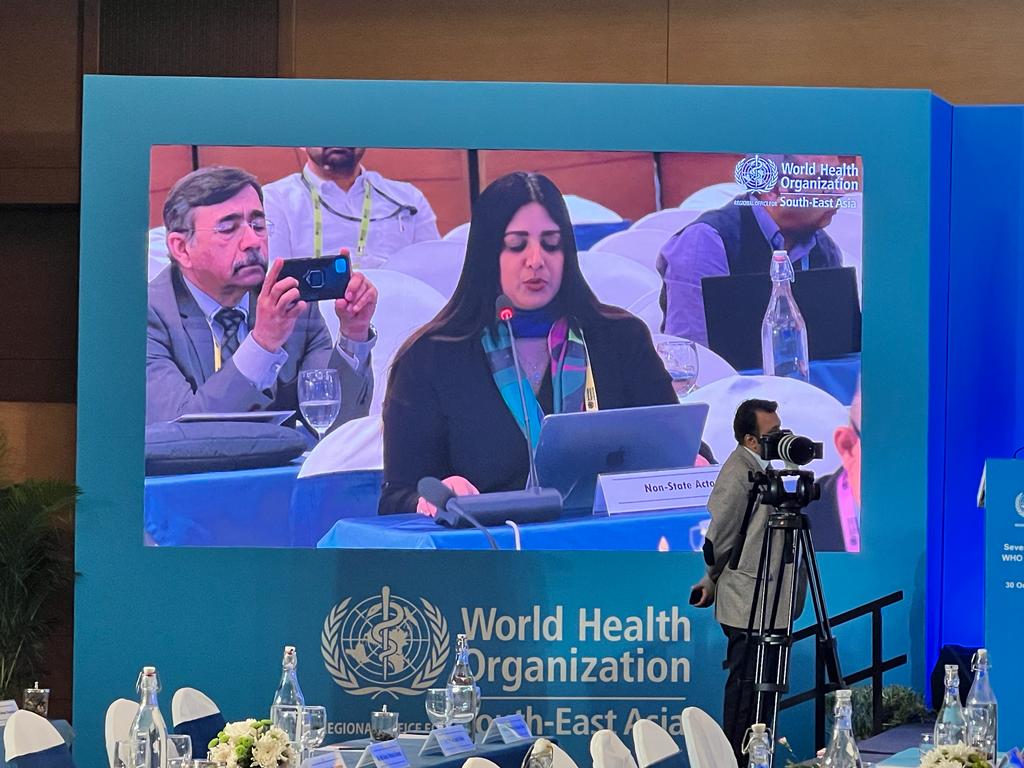WFSA Council Member, Prof. Sheila Myatra highlights the centrality of anaesthesiologists to efforts to realise universal health coverage plans within the South-East Asian region.
Agenda Item 8.3 – Annual report on monitoring progress on UHC and health-related SDGs
The World Federation of Societies of Anaesthesiologists (WFSA) represents over 500,000 anaesthesiologists in 135 countries, with 10 national member societies in the South-East Asian (SEA) Region.
The overall picture from this monitoring report is that UHC progress has stagnated due in part to region-wide underinvestment in health systems. The evidence is this underinvestment is a false economy, storing up costs and hindering growth.
In light of this WFSA welcomes the region’s commitment to PHC-oriented health systems that aim to provide comprehensive and quality-integrated services across the life-course.
WHO continues to be very clear on the centrality of anaesthesia services to the primary health care approach. This is evidenced by both Resolution WHA68.15 which identified anaesthesia and surgery as essential components of UHC and by WHA76.2 which emphasized the integration of emergency, critical care and operative services including anaesthesia as being key to the primary health care approach.
Successful integration of these services with primary health care brings them closer to the populations that need them. The sooner people can access care the better (and less costly) the health outcomes. It also enables clinical providers to combine efforts, resources, and expertise.
We will not realise PHC-oriented health systems if we continue to chronically underinvest in these vital anaesthesia services and workforces.
The SEA region continues to face a chronic lack of trained anaesthesia professionals.
The SEA region has a physician anaesthesia provider density of just 1.2 per 100,000 population, far below the recommended interim target of 5 per 100,000 as outlined in the WHO-WFSA International Standards for a Safe Practice of Anesthesia.
This lack of prioritization has resulted in millions of patients across Southeast Asia not being able access to safe and affordable anaesthesia and surgical services.
There is an urgent need to develop, implement and integrate national policy and financing frameworks that will sustainably grow and support vital anaesthesia services.
WFSA calls on SEA region member states and key stakeholders to:
- Embed national surgical, obstetric and anaesthesia plans into an integrated national health plan.
- Harmonise multi-stakeholder partnerships between policymakers, clinicians, and their professional bodies.
- Address chronic workforce deficiencies through investment in continued medical education programmes.






